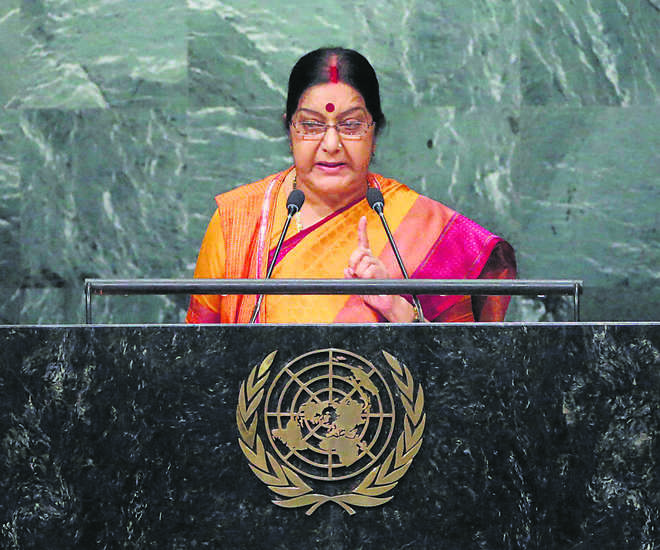
Gopal Krishna
Specialist in the study of corporate crimes and accountability of public institutions
Given that corporations, banks and other business enterprises are admittedly not meant to be "democratic public interest institutions", the decisive negotiations on an enforceable treaty on transnational corporations and human rights which are currently under way have great significance. A UN session in this regard concluded in late October. This session was a consequence of a UN resolution of 2014 which created the UN open-ended intergovernmental working group and tasked it to prepare the text of such treaty.
In its essence, the proposed treaty is an outcome of some 45 years of efforts underlining that self-regulation by corporations is not enough. As a consequence of such realisation in July 1972, at the initiative of the Government of Chile, the United Nations Economic and Social Council had requested UN Secretary-General to appoint a group of eminent persons to study the role of transnational corporations (TNCs) in relation to developing countries and international relations. This UN group was headed by LK Jha, former Governor, Reserve Bank of India. Developing countries Chile, India, Ecuador have been grappling with the ungovernable might of such corporations as the International Telephone and Telegraph Company, Union Carbide Corporation and Chevron. The efforts to enact a binding treaty for corporations expose the emptiness of voluntary UN Global Compact and UN Guiding Principles on Business and Human Rights.
Prior to the current efforts initiated by Ecuador and supported by India, China, South Africa, the Russian Federation, the Philippines, Vietnam, Indonesia, Venezuela, Cuba, Ethiopia, Kazakhstan, Kenya, Morocco, Namibia and Pakistan to provide the legal remedy to wrongs committed by business enterprises, the UN Sub-Commission on the Promotion and Protection of Human Rights had approved the 'UN norms on the responsibilities of transnational corporations and other business enterprises with regard to human rights' in August, 2003.
But the report of Prof John Ruggie, a Special Representative of the UN Secretary-General on business and human rights, undermined these proposed mandatory UN Norms under the influence of the International Chamber of Commerce and the International Organisation of Employers. It chose to promote the Guiding Principles on Business and Human Rights in July 2011 as part of advocacy for the status quo of voluntary regulation by the companies while admitting that "while corporations may be considered organs of society, they are specialised economic organs, not democratic public interest institutions."
The efforts of the UN working group vindicate the UN Norms which were drafted by Prof David Weissbrodt and other co-authors for mandatory regulation of TNCs. Professor Weissbrodt had underlined how only 1,000 of about 75, 000 TNCs had joined the UN Global Compact.
To inspire confidence, the new efforts for the proposed legally enforceable mandatory treaty must ensure that business enterprises are subservient to both peoples' will and legislative will. It must ensure that natural persons have primacy of human rights and public interest over private economic interests. It should reaffirm the hierarchical superiority of human rights norms over trade treaties and develop state obligations.
After the third session of the UN inter-governmental working group on October 27, a US representative asserted gleefully that this "binding treaty will not be binding for those who voted against it." The reaction gives a sense of déjà vu. After the initial adoption of the mandatory UN Norms, the corporations reacted sharply, saying: these norms are "duplicate and unnecessary". Professor Weissbrodt had said the norms are indeed "duplicate" in the sense that because they are based on existing laws, therefore, they are necessary.
Notably, the US did not participate in the process after the adoption of the UN resolution on June 26, 2014 at the meeting of UN Human Rights Council (UNHRC). Instead, the USA, the UK, France, Germany, Italy, Japan and the Republic of Korea as also Austria, the Czech Republic, Estonia, Ireland, Montenegro and Romania have voted against the resolution for a binding treaty. Under external influence, Saudi Arabia, Sierra Leone, the UAE, Gabon, Kuwait, the Maldives, Mexico, Peru, Argentina, Brazil, Chile, Costa Rica and Botswana abstained.
The Draft Report of Guillaume Long, the Chair-Rapporteur of the UN working group, paving the way for the treaty, has been approved by consensus. It will be submitted for final approval to the UNHRC in March, 2018. The Elements paper towards a treaty proposed by Ecuador will remain open for comments until February, 2018. It will form the basis for developing the zero draft treaty for a session of the UN working group in 2018. Instead of re-inventing the wheel, the UN group ought to adopt the proceedings of previous UN efforts and the Draft Code of Conduct on Transnational Corporations which emerged out of the report of the UN's Eminent Persons besides the UN Norms. This Code was submitted at the special session of the UN Commission on Transnational Corporations to the UN Economic and Social Council on May 31, 1990.
So far, India has supported these UN efforts. The Modi government's stand on the treaty amid manoeuvres of the EU, the US and commercial czars merits attention.



























